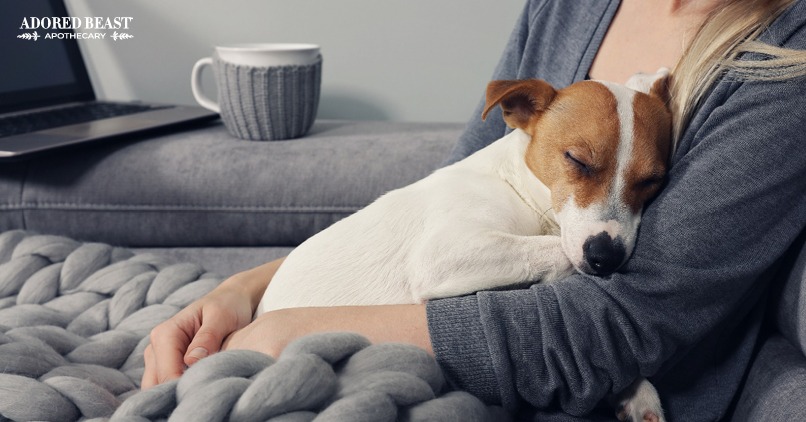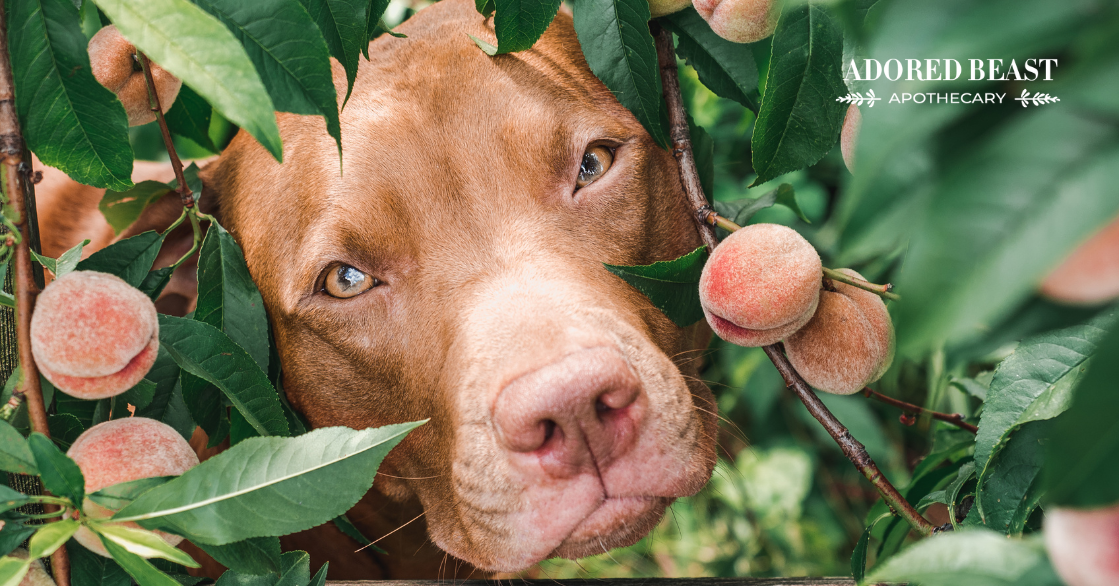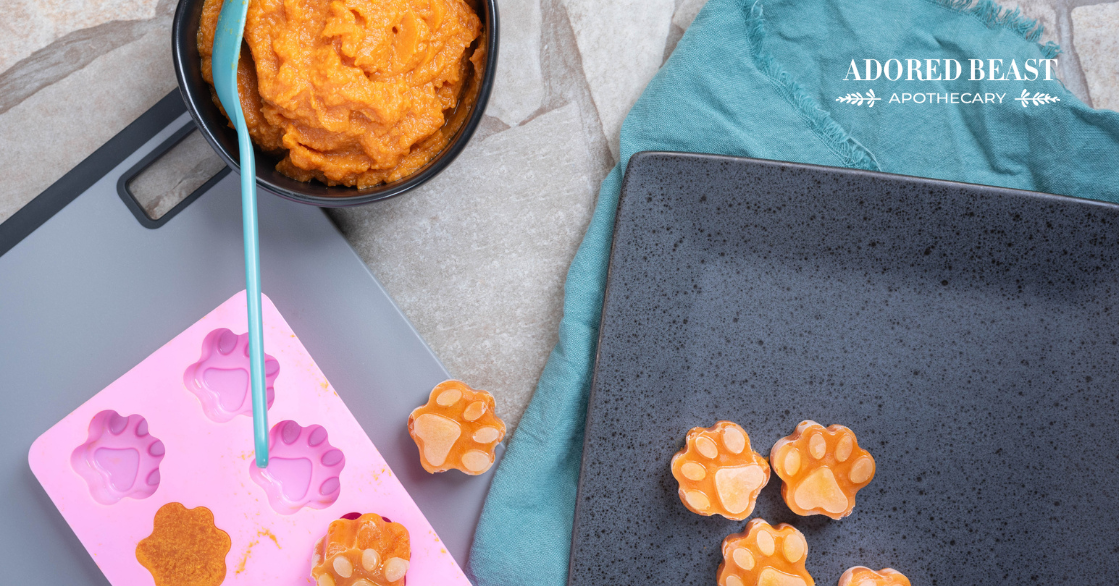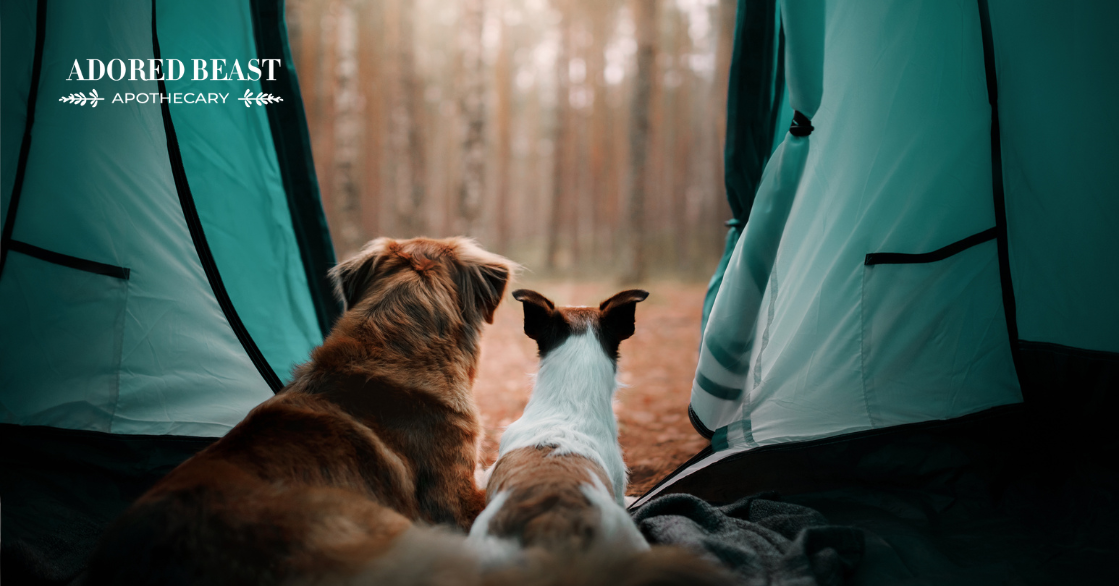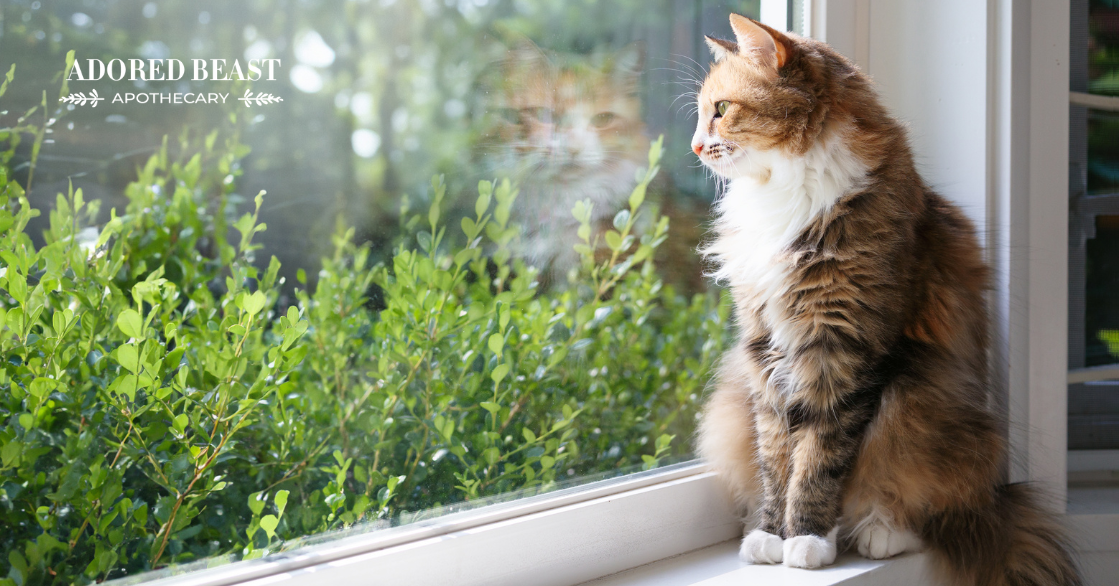Kennel cough seems to be a hot topic at the moment. I’ve heard from a lot of people that there are outbreaks happening in many different areas. And I was even talking to my team today and we’ve noticed tons of conversations about in our Facebook Community.
Kennel cough is definitely something that you want to pay attention to. It is highly contagious, and it’s incredibly uncomfortable for our dogs.
At the First Sign of a Cough…
At the first signs of any coughing, really, before you even get a chance to head to the vet, give Arnica 200C or 1M and Aconite 200C or 1M to try to reduce the severity of the cough. This is not to help support the kennel cough, but rather to try and derail it from getting more severe.
Next, make an appointment with your veterinarian. It has to be diagnosed. The reason I say that is because other things can mimic kennel cough, like pneumonia or aspirated pneumonia. This may happen if your dog has acid reflux or a vomiting issue and they somehow aspirate (inhale) a little bit. Dogs can also cough quite a bit (and quite badly) with heart disease, they can also develop laryngal paralysis or a collapsing trachea… there are lots of things that can look and sound like kennel cough. So definitely make sure you get it diagnosed.
Once you have a diagnosis from your veterinarian, there are several remedies I recommend:
- Phosphorus 200C
- Drosera 200C
- Spongia 200C
- Ipecac 200C
- Arnica 200C
(I know that sounds like a lot, but kennel cough is really something you want to get on top of so that it doesn’t linger and your dog gets sicker and sicker.)
Place 2 pellets of each remedy in a cup of water, let it sit for 20 minutes, then stir. Give 10ml (or approximately 2 teaspoons) every hour, 3 times. Then 3-4 times a day as needed. You should see improvement with in 12 hours. If your pup gets worse, stop. You should always be following the recommendation of your vet along with this. New to homeopathy? That’s ok!! Here’s a basic introduction.
For anybody who has ever heard a dog with kennel cough, you know it’s horrific. They cough, and they cough, and they cough. They have spasmodic coughing, where it goes on and on and on, and sometimes they’ll retch after. And that’s why we use the remedies that we do, because they’re specific to spasmodic coughs that can even end with retching.
If you go to the clinic and the veterinarian says your dog has kennel cough, or they listen to his chest and hear a secondary infection, they may recommend antibiotics. If this happens, don’t stop the combination remedies. You can continue them alongside the antibiotics – they’re not contraindicated, they’re very safe. Doing both will help speed up the healing process.
Additionally, if your dog is put on antibiotics, consider adding a high quality probiotic to their routine.
How to Support a Dog with Kennel Cough
The next thing that’s essential with kennel cough is supportive home care. It’s really, really important.
I always say to people “put yourself in your dog’s shoes.” Imagine yourself in this case, with bronchitis or some kind of wicked cough for example. You know, where you’re coughing so hard that you can’t catch your breath. If you think like that, your home care can become vital to how quickly your pup recovers. Therefore, when your animal is at home, think about the ways that you would support yourself, or your child, in this case.
What you really want to focus on is reducing the amount that your dog is coughing. When they’re coughing, the throat continues to get inflamed and it just takes longer and longer to heal.
So…
- Everything they eat should be soft. Your dog shouldn’t be eating anything that is dry. No kibble, no dry treats, no bones, nothing sharp. Whatever you feed needs to go down super easy. You don’t want anything irritating the throat.
- Warm (not hot) bone broth, with some really high quality Manuka honey melted in can be really soothing. NOTE: Make sure the honey is melted. Don’t just give your dog a spoonful of Manuka honey when they’ve got kennel cough. Many dogs who get kennel cough will have a thick mucus buildup that can make the honey very hard to swallow. This can create the potential for choking. Please mix it in really well.
- Raise their bowls. Put food on a raised platter or a little table, and feed from a plate rather than a bowl. Think about yourself again. If you are coughing a lot, or having trouble breathing, and you bend down and put your face in a bowl, think about how much harder it would be to breathe and swallow. With the raised plate it’s so much easier for them.
- Keep the immune system boosted. Sometimes you hear me talking about not boosting the immune system if it’s autoimmune, but in this case it’s not autoimmune, it’s a virus. You want to make sure that your animal’s immune system is as strong as possible. You can use things like phytoplankton, homeopathic echinacea, probiotics, and medicinal mushrooms.
- Keep exercise to a minimum. And I mean MINIMUM. Literally outside to pee and poo and then back in the house. You wouldn’t be out running a marathon with bronchitis, or even just rolling around on the floor. Your dog needs to rest and relax. Lots of snuggles on the couch and movie nights 🙂
- No collars. Whatever you do, don’t restrain them with a collar, even in the house. Dogs have very sensitive tracheas when they have kennel cough. Any kind of collar or restraint on their throat will start them coughing.
- Make sure there’s good air flow. Make sure that your dog is warm, but not too hot. You don’t want them panting. This means they’re breathing in air rapidly, and that’s going to cause them to cough. The best is a warm room with an osculating fan.
When you start to hear any type of coughing, it’s important to act fast. You want to try and derail symptoms and reduce the severity of the cough at the very first sign. Once you know it’s kennel cough, treat it carefully and support it with common sense and lots of TLC. With a little time and a lot of care, your pup will be back to their old self, right as rain, in no time.

